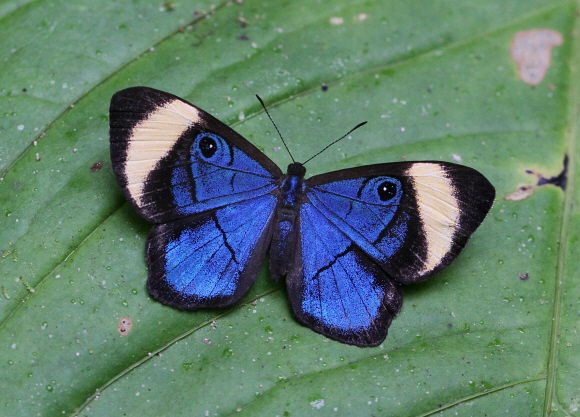 Mesosemia pacifica, Tatama NP, Colombia – Adrian Hoskins
Mesosemia pacifica, Tatama NP, Colombia – Adrian Hoskins
Introduction
There are 1324 known species of Riodinidae in the neotropical region, 121 of which are placed in the genus Mesosemia, and a further 8 in the closely related Semomesia.
Butterflies of both genera are commonly known as Eyemarks, due to the prominent ocelli located in the discal cell of the forewings. All Mesosemia and Semomesia species are sexually dimorphic. The males of many are metallic blue, marked with fine black lines and a black apex, while their females are typically dark brown, and often marked with prominent white bands. In most species there is a series of fine wavy black submarginal lines on the hindwings.
Mesosemia pacifica is only known from Colombia.
Habitats
This species is found in undisturbed cloudforest at elevations between about 1000-2000m.
Lifecycle
I have no data regarding pacifica but the lifecycle is likely to be similar to that of other Mesosemia species as follows: The eggs are white and laid singly on stems or on the undersides of leaves. The foodplants include Psychotria, Faramea, Guettarda, Cephaelis, Cephalanthus and other understorey Rubiaceae. The larvae are dull green, plump and slightly flattened. They have a series of flattened lateral lobes below the spiracles, and tufts of short stiff setae on the back and sides.
Adult behaviour
Males are usually seen singly, but sometimes several can be found flying together in places where trees have fallen and created small light gaps in the forest. The butterflies have a rapid and erratic flight. They settle frequently on the uppersides of leaves. After landing they immediately proceed to walk about over the leaf, always holding their wings half open. Females are seen much more rarely, usually when flitting about just above the herb layer in search of oviposition sites.
